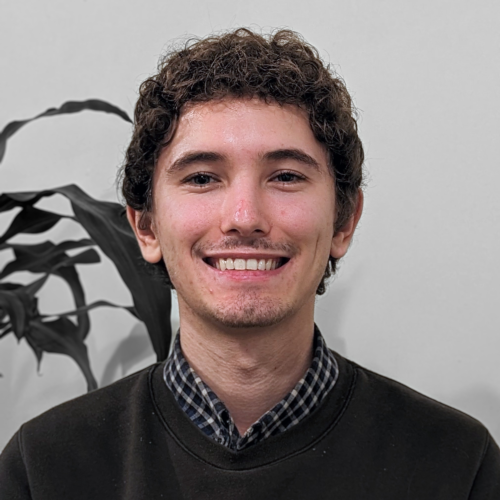As part of our Staff Profile series, we spoke to Dragos Gruia, PhD Student, LGBTQ+ Allies Network member and creator of the department’s LGBTQ+ Brains blog. Here, he tells us more about his research background and what winning a department recognition award means to him.
Introduce yourself – who are you and what do you do?
My name is Dragos and I am a PhD student in the CLC lab, specialising in digital health and brain imaging in cerebrovascular disease.
What’s your involvement with the LGBTQ+ Allies Network and how does this work impact our community?
I am part of the committee and I help organise all sorts of lovely events throughout the year. I also lead the ‘LGBTQ+ Brains’ interview series, where I talk to queer scientists about their research, their journey into science, and how those aspects relate to their identity. My hope is that we can make the department an even more inclusive place for newcomers, while also making those already here feel more at ease being themselves.
Can you tell us about your career so far – when did you join the college, and where were you working/studying before this?
I first moved to UK in 2015 to study Psychology and Neuroscience at University of Essex, and then I joined Imperial in 2019 to pursue an MSc in Neuroscience. During the latter, I got exposed to computational neuroscience for the first time, and completely fell in love with it. Soon after graduating, I was very lucky to get a position as a Research Technician for the UK Dementia Research Institute (DRI) at Imperial where I had the opportunity to dive deeper into this topic. Currently, I’m reaching the end of my second year as a PhD student!
You recently won a DoBS Reward and Recognition Award. What does this mean to you?
When I first started working with the network, one worry that I had was that no one would really care about the initiatives that we put forward – so you can imaging how happy I was when I saw that our work was well-received and appreciated! My hope is that our initiatives, and the network as a whole, will improve the visibility of queer scientists at Imperial, showing they are welcome and appreciated as much as any other scientist. Having the department’s support and encouragement is key in achieving that goal, and it is something I’m very grateful of.
Can you explain a bit more about your research interests and what initially sparked your interest in your current field?
While I was working as a research technician, I became very interested in how technology and AI can be used to improve patients’ lives in a meaningful manner. I was very lucky to be able to explore this area with the monitoring team at the UK DRI and I very quickly fell in love with it. This formed the basis of my PhD, which looks at remote monitoring of patients recovering from stroke, to see if it can provide us with a better picture of their health and also potential recovery. The tricky thing about stroke is that no one can reliably predict whether a person will recover well or deteriorate after having it. So having a system that picks up early signs of deterioration could help a lot of people.
What aspect of your role are you most excited about?
I can see how my work can directly affect the care that patients receive and improve their outcomes in a tangible way. This has kept me motivated many a time as I went through the inevitable peaks and throughs of the PhD. My supervisor and I are currently in the process of applying for a grant, which (with a bit of luck) would introduce our remote technology within the NHS.
When you are not working, what are your main passions and hobbies?
At the moment, I especially enjoy playing the piano, which I have been wanting to learn for a few years now. I also enjoy running in the evenings, which helps me clear my mind after a long day in the office. In my spare time, I’m also partial to the occasional computer game with friends!
And finally – if you were stranded on a desert island but allowed one luxury item, what would it be?
I would like to have a magical wand with similar properties to that from Harry Potter, so I can ‘apparate’ back to London once I am done enjoying all the wonderful things that a tropical island has to offer.
